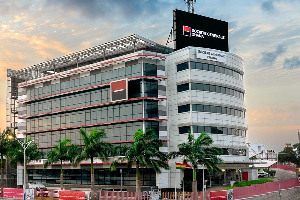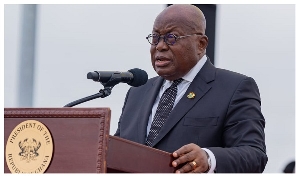Business News of Monday, 12 April 2021
Source: business24.com.gh
ACET wants increased private sector role to close infrastructure deficit
African countries must look beyond multilateral and development banks to meet the infrastructure gap, Rob Floyd, Director and Senior Advisor at the Africa Centre for Economic Transformation (ACET) has suggested.
Mr. Floyd was speaking at the completion of Africa’s first-ever Artificial Intelligence Challenge that had more than 40 data scientists from 20 countries participating.
Speaking to the press in a virtual programme to present the AI Challenge factsheet, Mr. Floyd maintained that they hope to use data obtained from the tools such as artificial intelligence, machine learning to help future decisions on infrastructure.
Africa’s annual infrastructure financing gap is estimated at US$64-108 billion, according to ACET.
According to him, the private sector is going to be more comfortable if they know there is good data behind the decisions they make.
Furthermore, Mr. Floyd indicated that Africa’s track record in moving projects to financial close is poor: 80 percent of infrastructure projects fail at the feasibility and business-plan stage.
Nearly 600 million people in sub-Saharan Africa lack access to grid electricity—accounting for over two-thirds of the global population without power.
Other project partners include the World Resources Institute, Save the Children, and the United Nations World Food Programme
The Challenge used publicly available data – satellite images, socioeconomic data, climate and topological data, population and demographic data, Google Trends, Google business data, social media data
The goal is to model the current situation, past temporal changes in population, infrastructure, etc., and in the next step predict future demands of infrastructure.
Between 2013 and 2017, the average annual funding for infrastructure development in Africa was $77 billion. 42 percent of which was funded by government budgets.
As a share of GDP, infrastructure investment in Africa has remained at around 3.5 percent per year since 2000. China spends about 7.7 percent.













